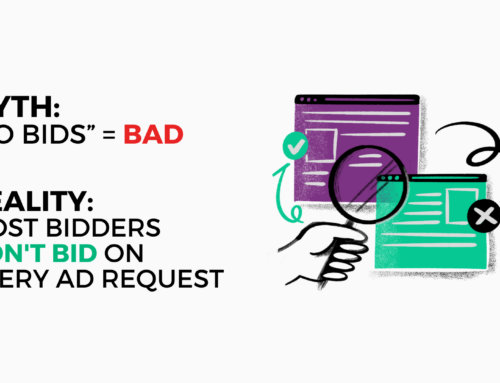Bits and Bobs from around the industry:
Privacy Sandbox’s Latency Issues Will Cost Publishers
The advertising industry faces challenges in testing Google’s Privacy Sandbox for Chrome’s cookie deprecation. The IAB Tech Lab’s Privacy Sandbox Task Force found issues in its case study analysis, and Mediavine’s testing indicates that the Privacy Sandbox’s Protected Audiences API (PAAPI) causes increased latency, reducing viewability and yield. PAAPI results in an average 1500 milliseconds of additional latency, impacting viewability rates, with Google recommending a sequential auction approach that substantially increases latency. Publishers argue for more controls and reporting capabilities within the Privacy Sandbox to address these issues and continue testing effectively. Recommendations for the industry include active testing, sharing results, persistence in testing, and preparing for potential delays in privacy-centric programmatic advertising development. Despite challenges, the industry is encouraged to view the cookie deprecation as an opportunity for improved advertising experiences through rigorous testing.
Microsoft Embraces Google’s Privacy Approach for Advertising
Microsoft has announced its “preliminary support” for Google’s Privacy Sandbox standards, indicating a collaborative effort between the two tech giants to enhance privacy in digital advertising. Microsoft Advertising will integrate these rules into its products to ensure effective ad delivery while prioritizing user privacy. Microsoft had previously developed a similar concept called Parakeet, which has evolved into the Ad Selection API. This tool, incorporated into Microsoft’s Edge browser, enables advertisers to display relevant ads without relying on cookies for user tracking, emphasizing privacy without compromising ad effectiveness. The move signifies Microsoft’s commitment to privacy in online advertising and a willingness to collaborate with Google for industry improvement.
What web creators should know about our March 2024 core update and new spam policies
Google’s March 2024 core update is a comprehensive one, involving changes to multiple core systems and marking an evolution in how the platform identifies the helpfulness of content. The update aims to display more useful results and reduce content created solely to attract clicks. Google has enhanced its core ranking systems, utilizing various innovative signals and approaches, moving away from a reliance on a single signal or system. The rollout of this complex update may take up to a month, with anticipated fluctuations in rankings.
In addition to the core update, Google has introduced new spam policies targeting practices that can negatively impact search results. The three new spam policies address expired domain abuse, scaled content abuse, and site reputation abuse. Violating these policies may result in lower rankings or removal from search results. The March 2024 spam update is launched alongside these policies.
1. Expired Domain Abuse: This occurs when an expired domain name is purchased and repurposed primarily to manipulate search rankings. The goal is to leverage the domain’s past reputation for higher search visibility, even if the new content provides little to no value to users. Google clarifies that using an old domain name for a new, original site designed to serve users is acceptable.
2. Scaled Content Abuse: This involves generating many pages for the primary purpose of manipulating search rankings without providing value to users. It covers the creation of large amounts of unoriginal content, regardless of whether it’s produced through automation, human efforts, or a combination of both. Google aims to take action against scaled content abuse to maintain search result quality.
3. Site Reputation Abuse: This occurs when third-party pages are published with little or no first-party oversight or involvement, intending to manipulate search rankings by exploiting the first-party site’s ranking signals. Google’s new policy does not consider all third-party content as a violation, focusing only on content hosted without close oversight and designed to manipulate search rankings.
To give site owners time to prepare for the changes, the site reputation abuse policy will take effect starting May 5, 2024. Google encourages content creators to review all spam policies and avoid engaging in such practices. The company aims to prioritize helpful content creators in search results over those engaging in spammy practices. The rollout progress and updates can be tracked on Google’s Search Status Dashboard, and feedback can be submitted after the update concludes.






